- Home
- Linda Lael Miller
More Than Words Volume 4 Page 2
More Than Words Volume 4 Read online
Page 2
Not that waiting tables at Happy Dan’s Café was much of a living, but it kept the electricity on and the property taxes paid and food in the refrigerator, at least, and all the customers were longtime friends, people she had always known. She had to do a lot of juggling financially, but Callie didn’t feel sorry for herself, and neither did anybody else who mattered.
Sure, the roof of the ranch house leaked and the old barn out back looked as though it might fall over at any moment. She had to shuffle the bills like a deck of cards and deal a sparse hand to be paid every month.
But she had Serena, and that made her rich.
She and Serena washed and dried and put away the dishes after supper. Then Serena did her homework, had her bath and put on her favorite flannel pajamas and crawled into bed with her teddy bear. Callie read her a story, listened to her prayers—“please give the poor horse a house to live in”—tucked her in and kissed her good-night.
All the while, she thought of Cherokee.
She didn’t want to call Luke Banner, but it was all she could think of to do. He was the only veterinarian in the small eastern Washington town of Parable, and if anybody knew anything about the old horse that had turned up, as if by conjuring, in the Martins’ pasture, it would be him.
He’d been as much a part of her childhood as Cherokee, Luke had. He’d been Denny’s best friend, and hers, too—after Denny, of course. One summer, between their junior and senior years of high school, when Denny was away working on an uncle’s wheat farm, Callie and Luke had gone to a dance together, just the two of them, and kissed under a bright moon, and for a while after that, sick with guilt, Callie had believed she was in love with Luke.
Then Denny had come home, good-natured, trusting Denny. Things had returned to normal—on the surface, at least. Deep down, though, something had changed, and Luke withdrew quietly from the circle of three. They graduated, and Luke went away to college. Denny took a part-time job at the sawmill in Parable and signed up for extension classes in computer science. Callie waited tables at Happy Dan’s, taught herself to make jewelry and watched helplessly as her widowed father fell slowly away from her, like the outlying regions of the ranch that had been in his family for three generations.
After her dad’s death, Callie and Denny were married, and the two of them had tried hard to turn the old house into the home it had never really been.
Denny had done well in his computer classes, and Callie had begun to sell some of her jewelry, a few pieces online but mostly over the counter at Happy Dan’s, to tourists and a few generous locals, and they’d sat nights around the kitchen table, drawing up plans.
So many plans.
They’d replace the roof on the house and shore up the barn. Get Callie a horse to ride, because she’d never stopped missing Cherokee, have some kids.
The horse never materialized. Seven long years of hoping had passed before Callie got pregnant; she’d miscarried twice before Serena came along.
Sweet, angelic Serena.
Literally a gift from God.
But in Callie’s experience, God gave with one hand and took away with the other. Serena had been barely three months old when Denny was killed in a car accident on his way home from a job interview.
There hadn’t been much insurance—just enough to pay Denny’s funeral expenses, with a very few dollars left over, and those had quickly gone for groceries and the special needs of a Down syndrome baby.
“Hello?” The voice sounded impatient, jarring Callie out of the sad mental maze she’d drifted into.
She stiffened, clutching the telephone receiver in her hand, pressing it hard against her ear.
“Hello,” Luke repeated.
Callie cleared her throat, blushing. “Dr. Banner?”
“Speaking,” Luke said.
“This is Callie Dorset.”
Silence. Luke had been back in Parable for several months by then and, small as the town was, he and Callie had tacitly avoided each other the whole while. Callie could not have said why, exactly—they’d never had a falling-out or anything like that. It was just—awkward. So many things to say, and no way to put them into words.
“Callie.” He said her name gruffly. “What can I do for you?”
Callie closed her eyes, but Luke’s image was branded into her mind just the same. Longish blond hair, blue eyes, rangy frame.
Why had she called him? Why not simply knock on the Martins’ door again and ask about Cherokee?
Because she’d known they wouldn’t answer.
And because something inside her wanted to hear Luke’s voice.
“Callie?” Luke prompted.
“There’s an old horse,” she began, and then couldn’t figure out how to go on from there, and so went silent again.
“An old horse,” Luke repeated. “What horse? Where?”
Callie swallowed hard. “Next door to my place.”
“The Martins,” Luke said, and now there was an edge to his tone.
“You know them?”
“I knew them. They moved out a few weeks ago, Callie—owing a pile of rent to old Mrs. Payton.”
“Oh,” Callie murmured, at a loss. “Maybe they’re coming back for Cherokee, then.”
“Doubtful,” Luke replied. “They left their dog in my kennel, here at the clinic, along with the four pups she had a couple of days after she arrived. And I don’t think there’s going to be a happy reunion.”
Callie, standing in her kitchen, dragged a chair over near the wall phone and sank into it. “He’s over there alone, then,” she fretted. If she’d had anyone to stay with Serena, she’d have gone out there into the darkness, rain or no rain, and thrown a halter on Cherokee. Led him home to stand in her own rickety barn. Found a way to buy him some hay and oats, run a hose in to fill the old trough.
“Is he sick?”
“Thin,” Callie answered. “I could see his ribs, and his hooves need trimming, too.”
Luke was quiet for a few moments, then he said, “I’d better call the animal control people. My barn is full at the moment, or I’d take him myself.”
“He could live here,” Callie heard herself say. Her heart fluttered in her throat. He could come home.
“I’d better have a look at him, just the same,” Luke said.
“I can’t pay you,” Callie said, to get it over with.
“I didn’t ask you to,” Luke replied.
After that, the conversation faltered and eventually wound down to goodbye.
Callie barely slept that night.
The next morning after breakfast, Callie drove Serena to school and saw Cherokee still standing under his apple tree as they passed. The storm had moved on, but the grass sparkled with moisture and the sunlight was dazzling.
“Poor horse,” Serena said, her lower lip jutting out a little.
Callie reached over to pat her arm. “He’ll be all right,” she said, hoping it was true. She’d already called Happy Dan’s and switched shifts with another waitress, so that she could have the day off to get the barn ready for Cherokee, but she wasn’t about to raise Serena’s hopes until it was a done deal. Too many things might go wrong: the Martins could return for their horse, or they might have sold him to someone, or Luke might change his mind and call in animal control.
After she’d walked Serena into the school building, Callie returned to the Blazer and headed for the feed store, spending a full day’s tips on a few bales of hay, a bag of grain, a sturdy new halter and lead rope, a grooming brush and a currycomb.
When she rounded the bend skirting the Martin place, there was Luke’s truck and fancy horse trailer, parked alongside the road. She drew up behind and got out to watch as he led Cherokee slowly down the slope of the pasture, toward an open gate.
Luke approached, Cherokee plodding along at his side. He nodded to Callie but didn’t smile. “He looks sound,” Luke said. “Needs a little fattening up, though.” He paused, looked her over. “You’re sure about this, Callie?
It’s not cheap, keeping a horse.”
Callie flushed, at least on the inside, and lifted her chin. “I can manage,” she said, not knowing how she would.
Luke handed her Cherokee’s lead rope and opened the back of the horse trailer, pulled the ramp down. “Don’t go getting all insulted,” he said. “It’s a lot of work and pretty expensive, that’s all I meant.”
She stroked Cherokee’s long neck, and let her pride-stiffened spine soften a little. “He was mine once,” she said, though she hadn’t meant to. “It’s like a miracle that he’s back, after all this time.”
“I remember,” Luke said. He took the lead rope back and led Cherokee up into the trailer, secured him there and muttered a word of encouragement, man to horse. Then he climbed down again, raised the ramp and shut the trailer doors. “There’s a question of ownership here, Callie,” he said, facing her. He wore jeans, battered boots, a blue work shirt and an old cowboy hat, pushed to the back of his head. “Even though it seems they’ve abandoned him, the Martins could still press some kind of claim. Don’t get too attached.”
Callie nodded, looked away. She remembered the day Cherokee had been taken away to the auction, only three days after she’d ridden him in a local parade, reigning as that year’s queen of the Parable Rodeo, and wondered if she could bear it if it happened again.
Luke hesitated, then laid a hand on her shoulder. “How are you, Callie?” he asked gruffly. “You’re getting by all right?”
Getting by was what Callie was good at.
Coping.
Making do.
Putting a brave face on things.
“I’m fine,” she said.
That was when he flashed the old grin, the one she remembered. The one that made the ground tilt under her feet, like some crazy carnival ride about to spin off its base, with her still aboard and scrambling for balance.
“Let’s get this horse over to your place,” he said.
A few minutes later, Callie was parking the Blazer by her barn, and seeing it the way it must have looked to Luke. The boards were weathered and the roof sagged. The door hung from rusted hinges, and she hadn’t had a chance to rake out the stalls or clean and fill the water trough.
Like as not, Luke would say something meant to be polite, then get back in his truck and drive off, without ever unloading Cherokee from the trailer.
She got out of the Blazer and stood waiting for him, shoulders squared, and ran sweat-dampened palms down the thighs of her jeans. Worked up a smile as he swung down out of his truck.
Waited nervously while he assessed the barn.
Inside the trailer, Cherokee stirred impatiently, as if he knew he’d come home, this time for sure, and was anxious to get on with things.
“I guess it’s been hard without Denny around to see to the place,” Luke said.
“It’s been hard,” Callie confirmed, but that was all she was willing to give him. She could tolerate a lot of things, but Luke Banner’s pity wasn’t among them.
She felt relief when he unlatched the doors of the horse trailer, pulled the ramp down again and went inside for Cherokee. In fact, she barely refrained from doing a little victory dance.
When was the last time she’d wanted to do that?
Cherokee nickered and tossed his head once he’d descended from the trailer. Stood looking around, remembering.
Callie put both arms around the animal’s neck and hugged him, out of sheer joy, and when she let him go, Luke was getting equipment out of his truck. A metal kit of some kind, and some tools.
Callie opened the back of the Blazer and tugged at one of the hay bales stuffed inside.
“Leave it, Callie,” Luke said. “I’ll do that.”
She knew how stubborn Luke could be, and he was doing her a favor, after all, so she tamped down her pride and gave some ground. “Okay,” she replied, and went into the barn to rake out a stall for Cherokee.
Luke brought him inside, looked around. “The old place has held together pretty well,” he said, surprising Callie. “Not that it couldn’t use a little work.”
Callie’s cheeks burned, and she went on with her raking. Her barn wasn’t fancy, like the one on Luke’s ranch on the other side of town. But it had space for an abandoned horse, and it sure beat leaving the animal standing in a lonely pasture, with only an apple tree to shelter him from inclement weather.
They worked in companionable silence for a long time, Callie cleaning up the floor and then swabbing out the water trough in the best stall, Luke clipping Cherokee’s hooves and then filing them smooth.
That done, Luke examined the horse again and gave him a shot.
Callie went into the house briefly to put a pot of coffee on to brew.
When she came outside again, Luke was carrying the last of the hay into the barn. Cherokee stood contentedly in his stall, munching on a handful of grain Luke had given him in the bottom of an old bucket.
“There’s coffee,” Callie said, suddenly shy. She’d have taken the new brush and groomed Cherokee, but she’d have had to pass Luke to do it, since he was blocking the way into the stall, and she wasn’t quite brave enough to do that.
“Sounds good,” Luke replied, when she’d been hoping he’d say thanks, but he had to get back to work since he had a veterinary practice to run.
She nodded and hurried back inside the house, bringing the coffee outside, in the same mugs she and Serena had used for their cocoa the night before. His black, hers with cream and sugar.
You remembered, his eyes said as he took the first sip of the hot, strong brew. He could smile with those eyes, not even moving his mouth.
“Thank you, Luke,” Callie said, to get over the awkwardness of the moment.
“All in a day’s work.” He lifted his mug in a little toast.
“You must have a lot of animals to look after,” she said.
“Here’s my hat, what’s my hurry?” Luke teased.
Callie relaxed a little. “I have a daughter,” she told him, and then wondered why she’d blurted those particular words. Parable was small, and everybody knew about Serena—including Luke Banner.
“I wish I did,” Luke said. Rumor had it that he and his elegant wife, Roberta, had divorced soon after he decided to come back to Parable and take over his dad’s thriving veterinary practice so his parents could retire. They traveled a lot now.
Luke’s tone finally registered; he’d spoken so wistfully that Callie wondered if children had been an issue in the disintegration of his marriage, on top of the unpopular move from Seattle to Podunk, but she didn’t know Luke well enough to ask him such a personal question. Not anymore, anyway.
“Serena’s the best thing that ever happened to me,” Callie said, because it was true, and because she wanted him to know she’d never regretted having her little girl for so much as a moment, even though they’d known about the Down syndrome, she and Denny, early in the pregnancy.
“I’ve seen her once or twice,” Luke said. “You’ve got every right to be proud.”
Callie frowned slightly. If Luke had seen Serena, he’d seen her, too, since she and her daughter were always together except during the day, when Serena was at school. Why hadn’t he approached? Said hello, at least?
She didn’t realize she’d spoken aloud until Luke answered her.
“Why didn’t you?” he countered. And he wasn’t smiling, with his mouth or with his eyes.
Flustered, Callie didn’t know what to say. She took another sip of coffee and almost choked on the stuff.
Luke emptied his cup and handed it to her. “I’d better get moving,” he said. “You wouldn’t want a puppy, would you?”
Callie was a moment catching up. “A puppy?”
“I’ve got four of them to find homes for,” he said. “Once they’re weaned, of course.”
Callie remembered the dog the Martins had left behind; Luke had mentioned it on the phone the night before. What kind of people could just turn their backs and leave like t
hat? “Maybe,” Callie said. “Serena would love to have a dog.”
Luke nodded. “Animals are good company for kids,” he said, opening a back door on his extended-cab pickup truck and setting the kit inside, then the tools he’d used to trim and file Cherokee’s hooves. He nodded toward the barn. “Is that horse gentle enough to ride?”
Callie nodded. She meant to give Cherokee a little time to mend and get used to being back home, then saddle him up for some careful exercise.
“I read about a woman up in Canada,” Luke said. “Her name’s Jeanne Greenberg. She founded an organization called SARI, in memory of her daughter. You might want to look her up online.”
“What kind of organization?” Callie asked, realizing that she didn’t want Luke to go.
“Therapeutic riding,” he answered, climbing into the truck and leaving the door open.
Something quickened inside Callie. She thought of Serena, and her secret dream. She wanted to be a rodeo queen, Serena did, with a sash and a pink cowgirl hat with a gleaming tiara above the brim. “Like you, Mom,” she’d said, looking up from one of the old photo albums she and Callie sometimes went through together.
How long had it been since Serena had mentioned that dream?
“Thanks again,” Callie said, waving to Luke.
“I’ll be back tomorrow after the clinic closes,” Luke called. “To look in on Cherokee.”
With that, he shut the truck door and started the engine.
Callie watched as he drove out.
When he was gone, she took their two mugs inside, washed them out at the kitchen sink and set them in the drainer.
That done, she returned to the barn and brushed Cherokee down, silently promising that, this time, he could stay. She’d find a way to make it happen.
At three o’clock, when school let out, she was there waiting, like always, when Serena came out of her classroom.
“I have a surprise for you,” Callie said.
Serena’s green eyes brightened. “Ice cream?”

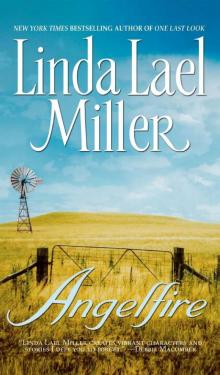 Angelfire
Angelfire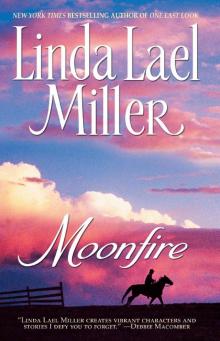 Moonfire
Moonfire The Yankee Widow
The Yankee Widow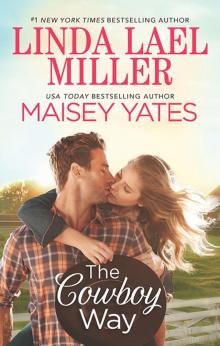 The Cowboy Way
The Cowboy Way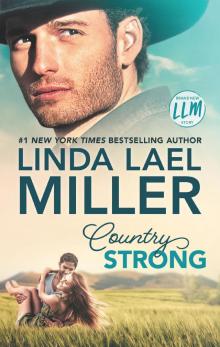 Country Strong--A Novel
Country Strong--A Novel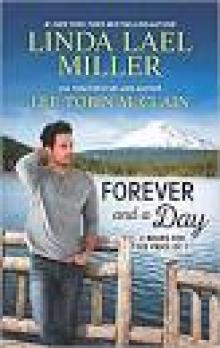 Forever and a Day
Forever and a Day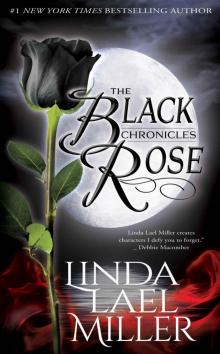 The Black Rose Chronicles
The Black Rose Chronicles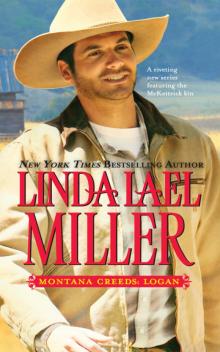 Montana Creeds: Logan
Montana Creeds: Logan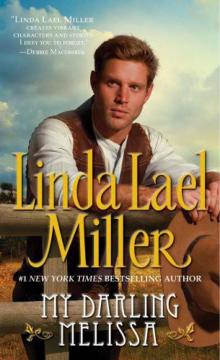 My Darling Melissa
My Darling Melissa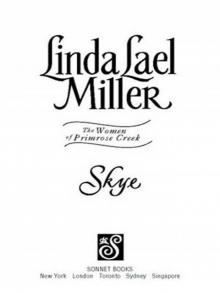 Skye
Skye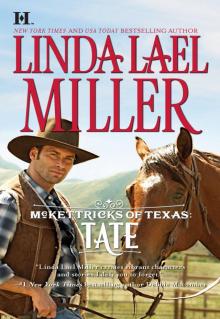 McKettricks of Texas: Tate
McKettricks of Texas: Tate Springwater Seasons
Springwater Seasons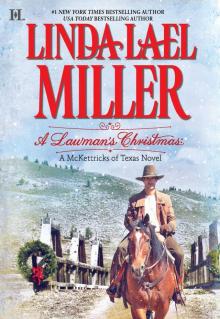 A Lawman's Christmas
A Lawman's Christmas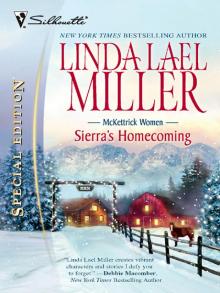 Sierra's Homecoming
Sierra's Homecoming![Parable, Montana [4] Big Sky Summer Read online](http://i1.bookreadfree.com/i/03/22/parable_montana_4_big_sky_summer_preview.jpg) Parable, Montana [4] Big Sky Summer
Parable, Montana [4] Big Sky Summer One Last Weekend
One Last Weekend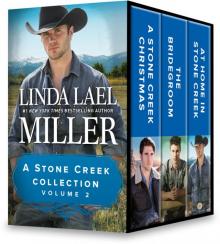 A Stone Creek Collection, Volume 2
A Stone Creek Collection, Volume 2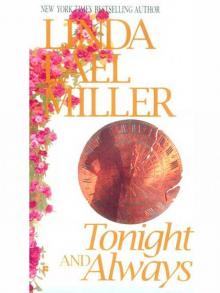 Tonight and Always
Tonight and Always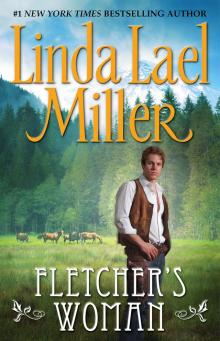 Fletcher's Woman
Fletcher's Woman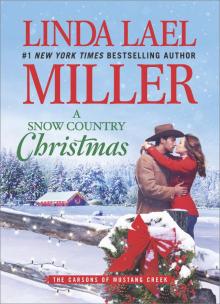 A Snow Country Christmas
A Snow Country Christmas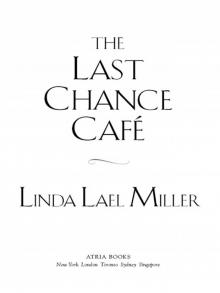 The Last Chance Cafe
The Last Chance Cafe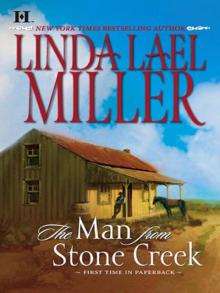 The Man from Stone Creek
The Man from Stone Creek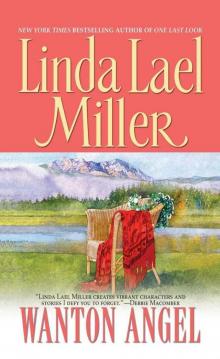 Wanton Angel
Wanton Angel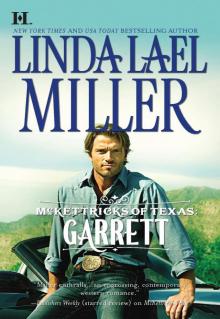 McKettricks of Texas: Garrett
McKettricks of Texas: Garrett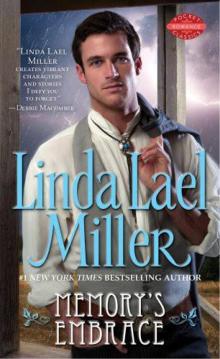 Memory's Embrace
Memory's Embrace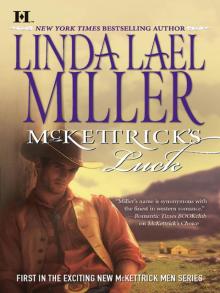 McKettrick's Luck
McKettrick's Luck Pirates
Pirates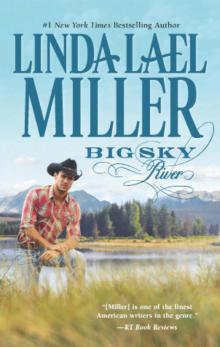 Big Sky River
Big Sky River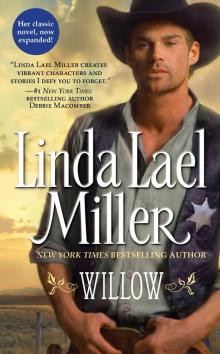 Willow: A Novel (No Series)
Willow: A Novel (No Series)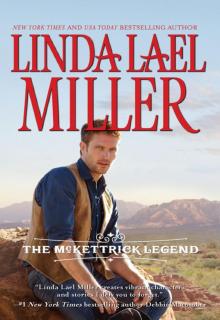 The McKettrick Legend: Sierra's HomecomingThe McKettrick Way (Hqn)
The McKettrick Legend: Sierra's HomecomingThe McKettrick Way (Hqn)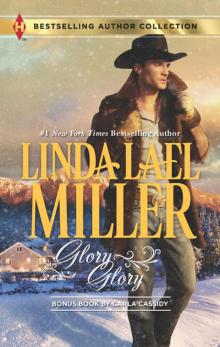 Glory, Glory: Snowbound with the Bodyguard
Glory, Glory: Snowbound with the Bodyguard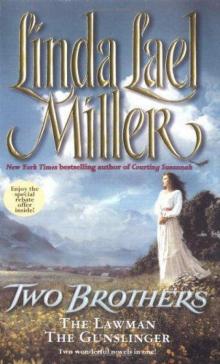 Two Brothers
Two Brothers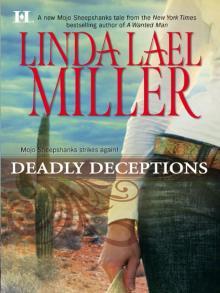 Deadly Deceptions
Deadly Deceptions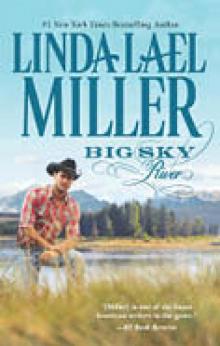 Big Sky Secrets
Big Sky Secrets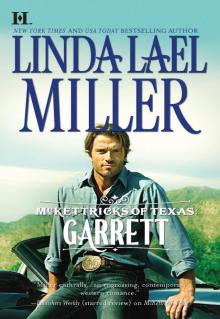 Garrett
Garrett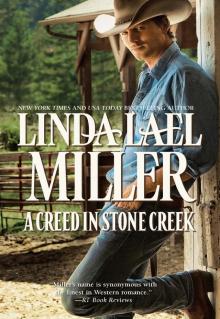 A Creed in Stone Creek
A Creed in Stone Creek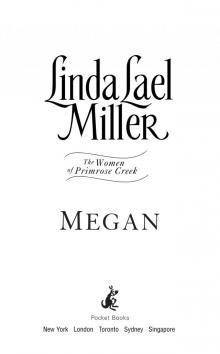 Megan
Megan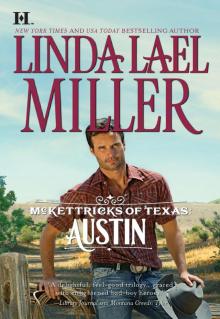 McKettricks of Texas: Austin
McKettricks of Texas: Austin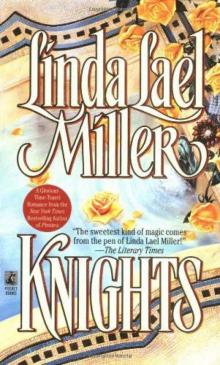 Knights
Knights High Country Bride
High Country Bride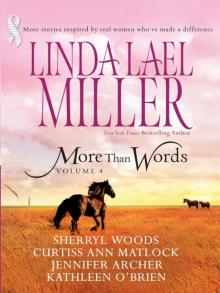 More Than Words Volume 4
More Than Words Volume 4 Glory, Glory
Glory, Glory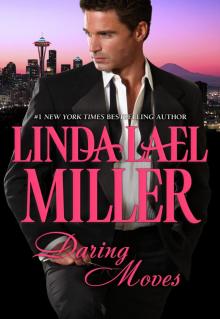 Daring Moves
Daring Moves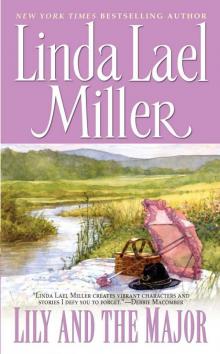 Lily and the Major
Lily and the Major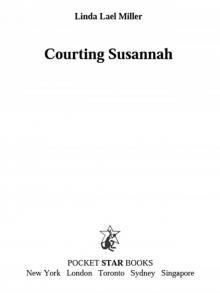 Courting Susannah
Courting Susannah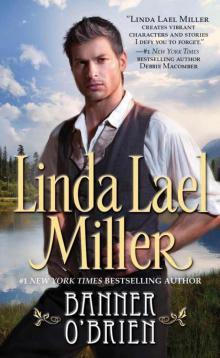 Banner O'Brien
Banner O'Brien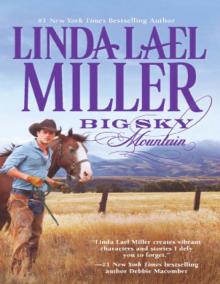 Big Sky Mountain
Big Sky Mountain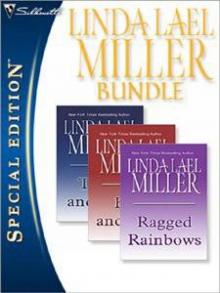 Linda Lael Miller Bundle
Linda Lael Miller Bundle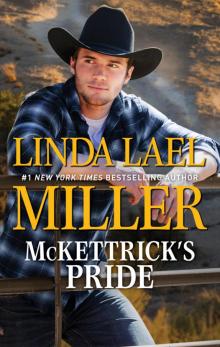 McKettrick's Pride
McKettrick's Pride A Stone Creek Collection Volume 1
A Stone Creek Collection Volume 1 A Wanted Man
A Wanted Man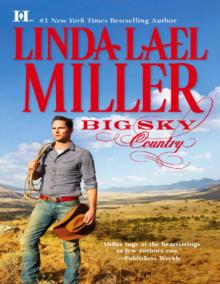 Big Sky Country
Big Sky Country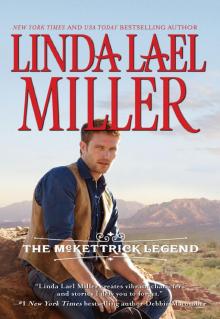 The McKettrick Legend
The McKettrick Legend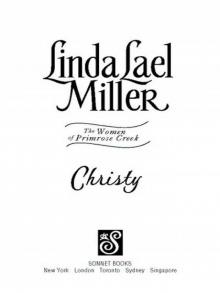 Christy
Christy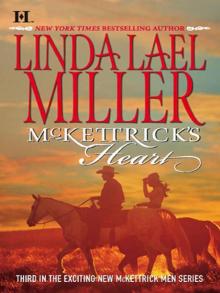 McKettrick's Heart
McKettrick's Heart Resurrection
Resurrection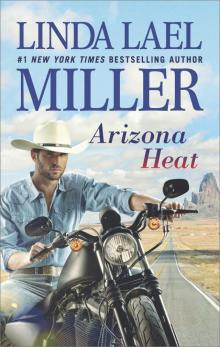 Arizona Heat
Arizona Heat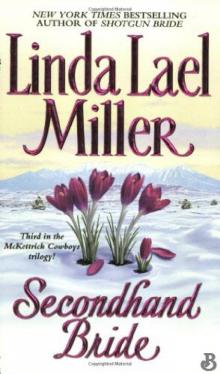 Secondhand Bride
Secondhand Bride Snowflakes on the Sea
Snowflakes on the Sea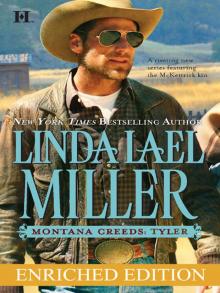 Montana Creeds: Tyler
Montana Creeds: Tyler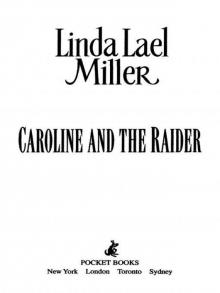 CAROLINE AND THE RAIDER
CAROLINE AND THE RAIDER A Proposal for Christmas: State SecretsThe Five Days of Christmas
A Proposal for Christmas: State SecretsThe Five Days of Christmas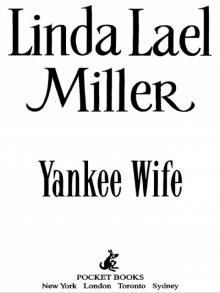 Yankee Wife
Yankee Wife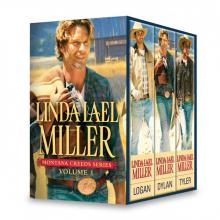 Linda Lael Miller Montana Creeds Series Volume 1: Montana Creeds: LoganMontana Creeds: DylanMontana Creeds: Tyler
Linda Lael Miller Montana Creeds Series Volume 1: Montana Creeds: LoganMontana Creeds: DylanMontana Creeds: Tyler The Christmas Brides
The Christmas Brides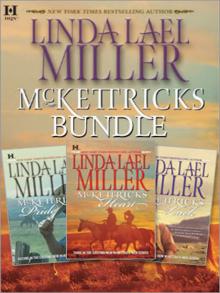 McKettricks Bundle
McKettricks Bundle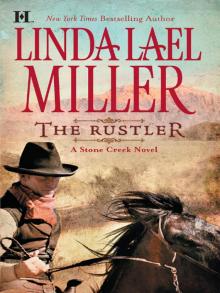 The Rustler
The Rustler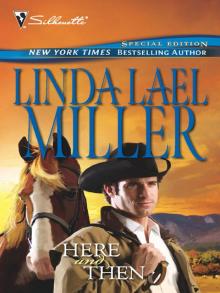 Here and Then
Here and Then Only Forever
Only Forever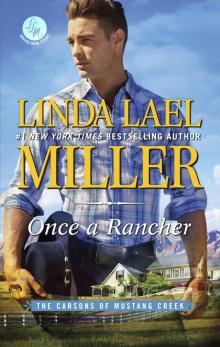 Once a Rancher
Once a Rancher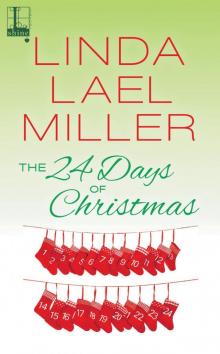 The 24 Days of Christmas
The 24 Days of Christmas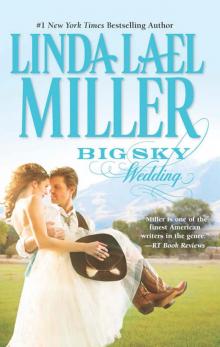 Big Sky Wedding
Big Sky Wedding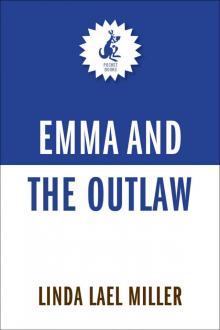 Emma and the Outlaw
Emma and the Outlaw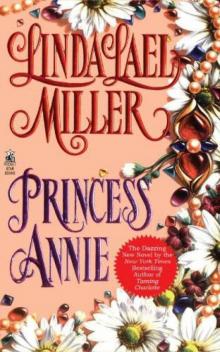 Princess Annie
Princess Annie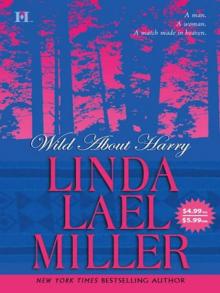 Wild About Harry
Wild About Harry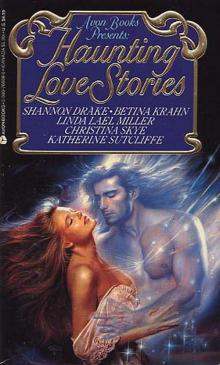 That Other Katherine
That Other Katherine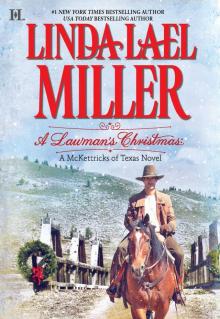 A Lawman's Christmas: A McKettricks of Texas Novel
A Lawman's Christmas: A McKettricks of Texas Novel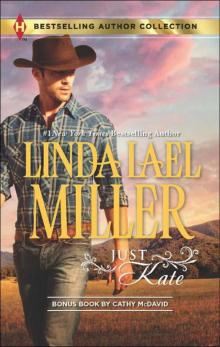 Just Kate: His Only Wife (Bestselling Author Collection)
Just Kate: His Only Wife (Bestselling Author Collection)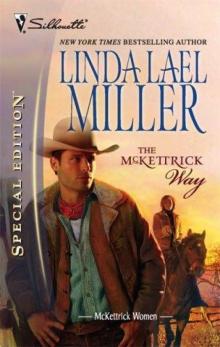 The McKettrick Way
The McKettrick Way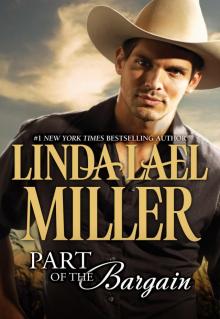 Part of the Bargain
Part of the Bargain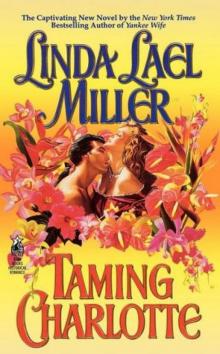 Taming Charlotte
Taming Charlotte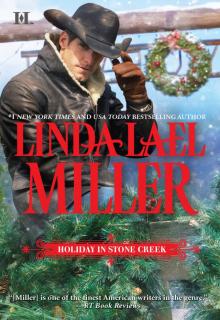 Holiday in Stone Creek
Holiday in Stone Creek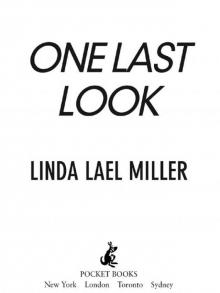 One Last Look
One Last Look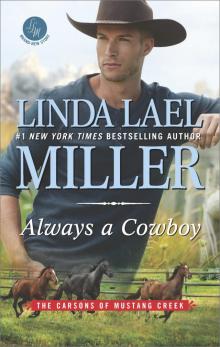 Always a Cowboy
Always a Cowboy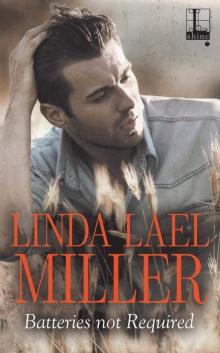 Batteries Not Required
Batteries Not Required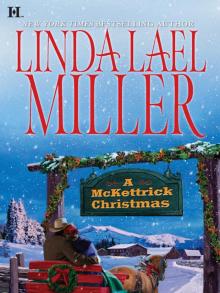 A McKettrick Christmas
A McKettrick Christmas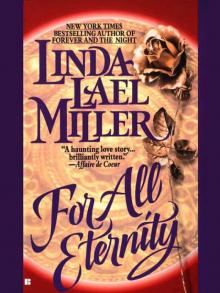 For All Eternity
For All Eternity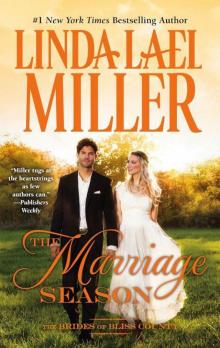 The Marriage Season
The Marriage Season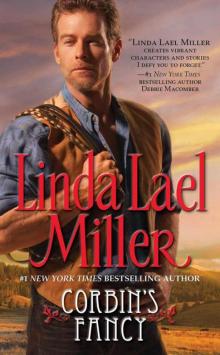 Corbin's Fancy
Corbin's Fancy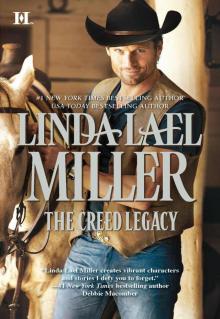 The Creed Legacy
The Creed Legacy Springwater Wedding
Springwater Wedding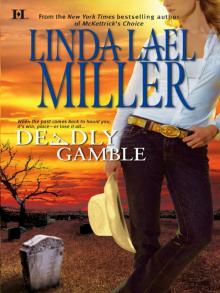 Deadly Gamble
Deadly Gamble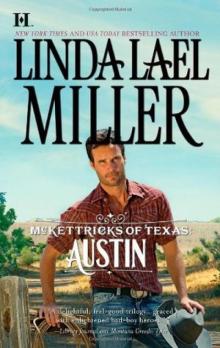 Austin
Austin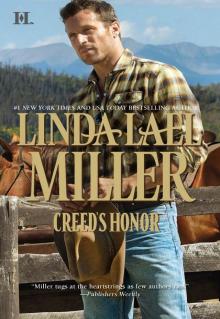 Creed's Honor
Creed's Honor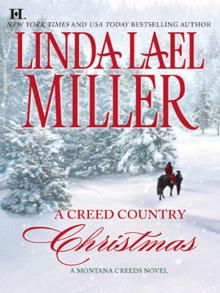 A Creed Country Christmas
A Creed Country Christmas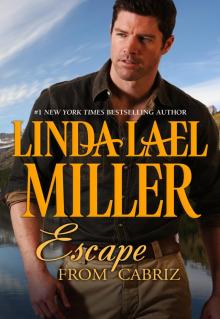 Escape from Cabriz
Escape from Cabriz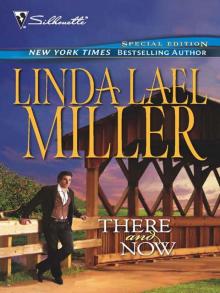 There and Now
There and Now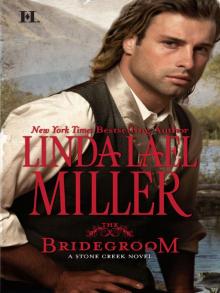 The Bridegroom
The Bridegroom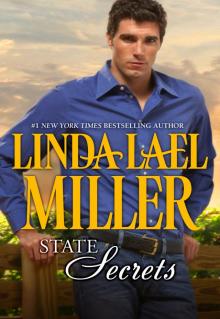 State Secrets
State Secrets Bridget
Bridget